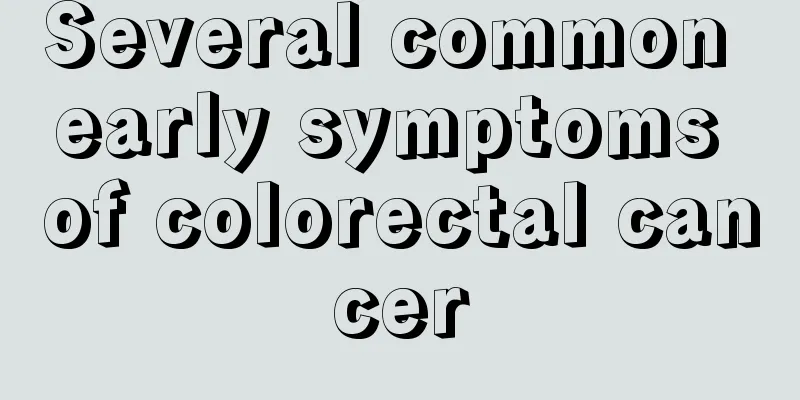What is the anti-inflammatory effect of wisdom tooth flushing

|
I believe many people are familiar with oral diseases. This type of disease is very common in people’s daily lives, and there are many factors that cause this type of disease. Among these diseases, wisdom teeth are very common. There are many treatments for this disease, and wisdom tooth flushing and anti-inflammatory treatment is a commonly used method. So, what is the role of wisdom tooth flushing and anti-inflammatory treatment? First, what is the effect of wisdom tooth flushing and anti-inflammatory treatment? Wisdom tooth inflammation is a very painful thing. When it is serious, half of the face is swollen and it is difficult to open the mouth. The author has experienced this himself. You cannot extract a tooth when it is inflamed. You have to wait until the inflammation subsides before you can extract it. This period is very painful. Flushing is to bend a sterilized injection needle, and use chlorhexidine or hydrogen peroxide and saline to flush the crown bag to flush out the object embedded inside. You need to ask your family for help. You cannot do it alone. Even if you go to the hospital for flushing, the doctor will do the same. This is the author's personal experience. Second, rinse the wisdom teeth alternately with hydrogen peroxide and saline. If there is no obvious fluctuation of the abscess, no incision is required. Condition analysis: When wisdom teeth grow, they are covered by the gums, and food will be stored in the gums, which will cause pericoronitis. In this case, you need to flush and reduce inflammation, flush with hydrogen peroxide and saline alternately, and then apply medicine. The special position in which wisdom teeth grow brings many problems to their cleaning and treatment. Common diseases caused include caries (commonly known as tooth decay), periodontitis, and pulpitis: Since wisdom teeth are at the innermost part, they are not easy to clean with daily brushing and are prone to tooth decay. Wisdom teeth often experience swelling and pain due to insufficient space for eruption, and they will also invade adjacent teeth, causing toothache. Due to the lack of opposing teeth, wisdom teeth sometimes over-erupt, thus affecting the bite; sometimes they under-erupt and become impacted teeth, causing malocclusion, pericoronal infection, and difficulty opening the mouth. Wisdom teeth are the third largest molars and have an important impact on the adjacent second molars. Since most wisdom teeth are impacted and tilted forward, they press on the second molar at an angle of about 45 degrees, forming a crown angle that makes it easy for food to get stuck. Over time, this can lead to caries of the second molar or even pulpitis. Even if it is not that serious, it can affect the lifespan of the second molar. Wisdom teeth should be retained as much as possible, and should not be extracted if possible, because extraction may damage nerves and memory. What is the effect of wisdom tooth flushing and anti-inflammatory treatment? Therefore, many people often ask: Should wisdom teeth be removed? Usually, dentists will recommend removing wisdom teeth based on the following reasons: 1. Tooth decay: If wisdom teeth have tooth decay, in addition to very simple tooth decay on the occlusal surface that is not deep, which can be filled, those tooth decay on the adjacent surface require very good technology, as well as those that are very deep and even require root canal treatment. We recommend extraction to prevent future troubles. 2. Invasion of adjacent teeth: Usually the patient is unaware of the disease, but the dentist finds it out through X-ray diagnosis. Usually there is not enough space for the wisdom teeth to erupt, and they will fall on the second molars, making it difficult to clean the second molars, or even causing partial absorption of the teeth, causing discomfort or toothache for the patient. 3. Insufficient space: Wisdom teeth have been extinct in the history of human evolution. As a result, the dental arches are getting smaller and smaller, and lack of space is common. The swelling and pain are most noticeable when the tumor breaks out. Many people decide to have their wisdom teeth removed because they cannot tolerate the pain. 4. Difficult to clean: Due to lack of space, wisdom teeth often grow crookedly, making it difficult to clean the teeth and leading to tooth decay. 5. No opposing teeth: As mentioned earlier, not everyone will have all four wisdom teeth grow. Therefore, if there is no competing wisdom tooth opposite the wisdom tooth, the wisdom tooth may over-erupt and affect the bite. 6. Impacted teeth: This is usually the most annoying type. Dentists find it difficult to deal with, but patients may not feel it, so they ignore it. This type of tooth is usually buried in the alveolar bone and needs to be extracted if it hurts or if a lesion is diagnosed. 7. If a young person pulls out the first of the four wisdom teeth before they grow wisdom teeth, he or she will not need to have the wisdom teeth extracted. When the wisdom teeth grow out, they will automatically move forward to replace the extracted teeth. The advantage of this is that the trauma of tooth extraction is small, and the wisdom teeth grow faster because of the large space, so the pain is much reduced. - |
<<: What is the effect of the left oxygen anti-inflammatory injection
>>: Will anti-inflammatory drugs cause hematuria?
Recommend
Introducing several exercise methods for teratoma patients
There are corresponding dietary taboos and precau...
What are the common clinical symptoms of tongue cancer
Cancer is frightening. It can occur in any part o...
Gastric cancer is preventable
Shan Tianfang, a master of storytelling, has brou...
Is the dull pain on the right side of my abdomen liver cancer?
The pain in the early stage of liver cancer may b...
How to clean the kitchen stove
Some people will be very distressed when it comes...
What are the symptoms of advanced liver cancer
The patient is in the late stage of liver cancer....
What is the effective way to eliminate chicken skin?
In fact, many friends are quite disgusted by the ...
How often should a plaster be replaced?
Plasters are effective in treating some injuries ...
How to prolong life after having lung cancer? The sooner you know these common knowledge about lung cancer, the better
Everyone wants to have a healthy body and spend t...
What is the shelf life of toilet water and how to use it better
In order to prevent heatstroke and cool down in t...
How to take better care of liver cancer patients? What are the symptoms of liver cancer in women?
Experts say: The early symptoms of liver cancer a...
A review of tongue cancer treatment methods
Tongue cancer is not common in life, so it is not...
No starch and sugar weight loss method
When it comes to losing weight, many fat girls ma...
What causes red urine?
Urine is a liquid that is normally secreted by th...
Can pathological jaundice be cured?
Neonatal jaundice is a common disease. Many new p...









